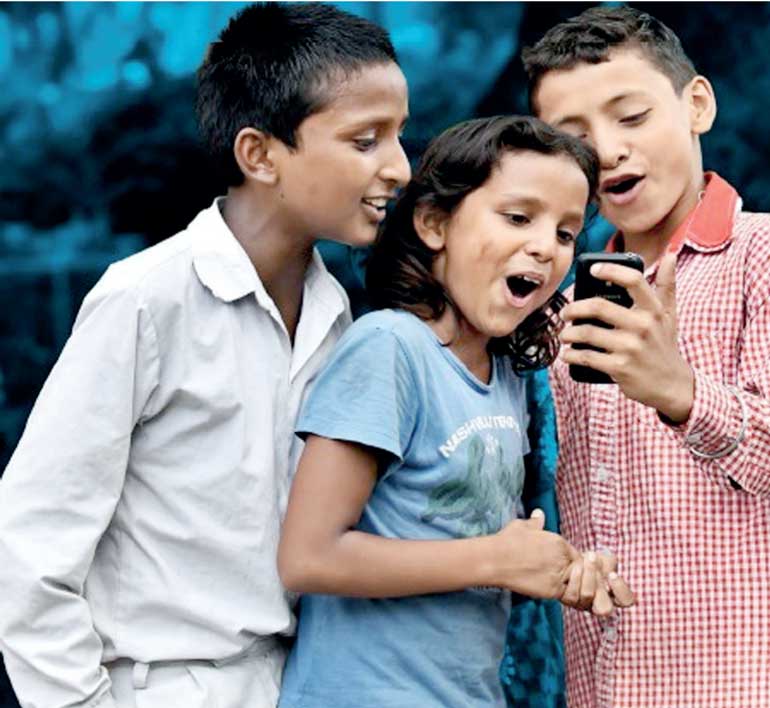Tuesday Feb 24, 2026
Tuesday Feb 24, 2026
Thursday, 14 December 2017 00:00 - - {{hitsCtrl.values.hits}}

Despite children’s massive online presence – one in three internet users worldwide is a child – too little is done to protect them from the perils of the digital world and to increase their access to safe online content, UNICEF said in its annual flagship report released this week.
The State of the World’s Children 2017: Children in a digital world presents UNICEF’s first comprehensive look at the different ways digital technology is affecting children’s lives and life chances, identifying dangers as well as opportunities. It argues that governments and the private sector have not kept up with the pace of change, exposing children to new risks and harms and leaving millions of the most disadvantaged children behind.
The flagship report explores the benefits digital technology can offer the most disadvantaged children, including those growing up in poverty or affected by humanitarian emergencies. These include increasing their access to information, building skills for the digital workplace, and giving them a platform to connect and communicate their views.
But the report also shows that millions of children are missing out, and face a ‘digital divide’ based on poverty, gender or other factors. Around one third of the world’s youth – 346 million – are not online, exacerbating inequities and reducing children’s ability to participate in an increasingly digital economy.
Drawing on data from the soon to be released first-ever Sri Lankan national study into the online usage of 11- to 18-year-olds, the report also highlights a ‘digital divide’ that sees girls in Sri Lanka account for only a third of the adolescents using computers and mobile phones to go online. The full UNICEF Sri Lanka-commissioned report entitled, ‘Keeping Children in Sri Lanka Safe and Empowered Online: A study on Sri Lanka’s digital landscape’ will be released on Safer Internet Day, 6February 2018.
“In a digital world, our dual challenge is how to mitigate the harms while maximising the benefits of the internet for every child,” said UNICEF Sri Lanka Representative Tim Sutton, adding, “It is simply not good enough that many young people – especiallygirls – aremissing out on the real benefits of the internet in Sri Lanka. For this country to achieve its ambitious economic and societal goals, we must provide equal opportunities for success to our next generation. This must include equal access to information toenable young people to build their skills for the digital workplace. Critically, however children need a safe and secure online platform to connect and communicate their views.”
The report also examines how the internet increases children’s vulnerability to risks and harms, including misuse of their private information, access to harmful content, and cyberbullying. The ubiquitous presence of mobile devices, the report notes, has made online access for many children less supervised – and potentially more dangerous.
And digital networks like the Dark Web and cryptocurrencies are enabling the worst forms of exploitation and abuse, including trafficking and ‘made to order’ online child sexual abuse.
The report presents current data and analysis about children’s online usage and the impact of digital technology on children’s wellbeing, exploring growing debates about digital “addiction” and the possible effect of screen time on brain development.
Additional facts from the report include: